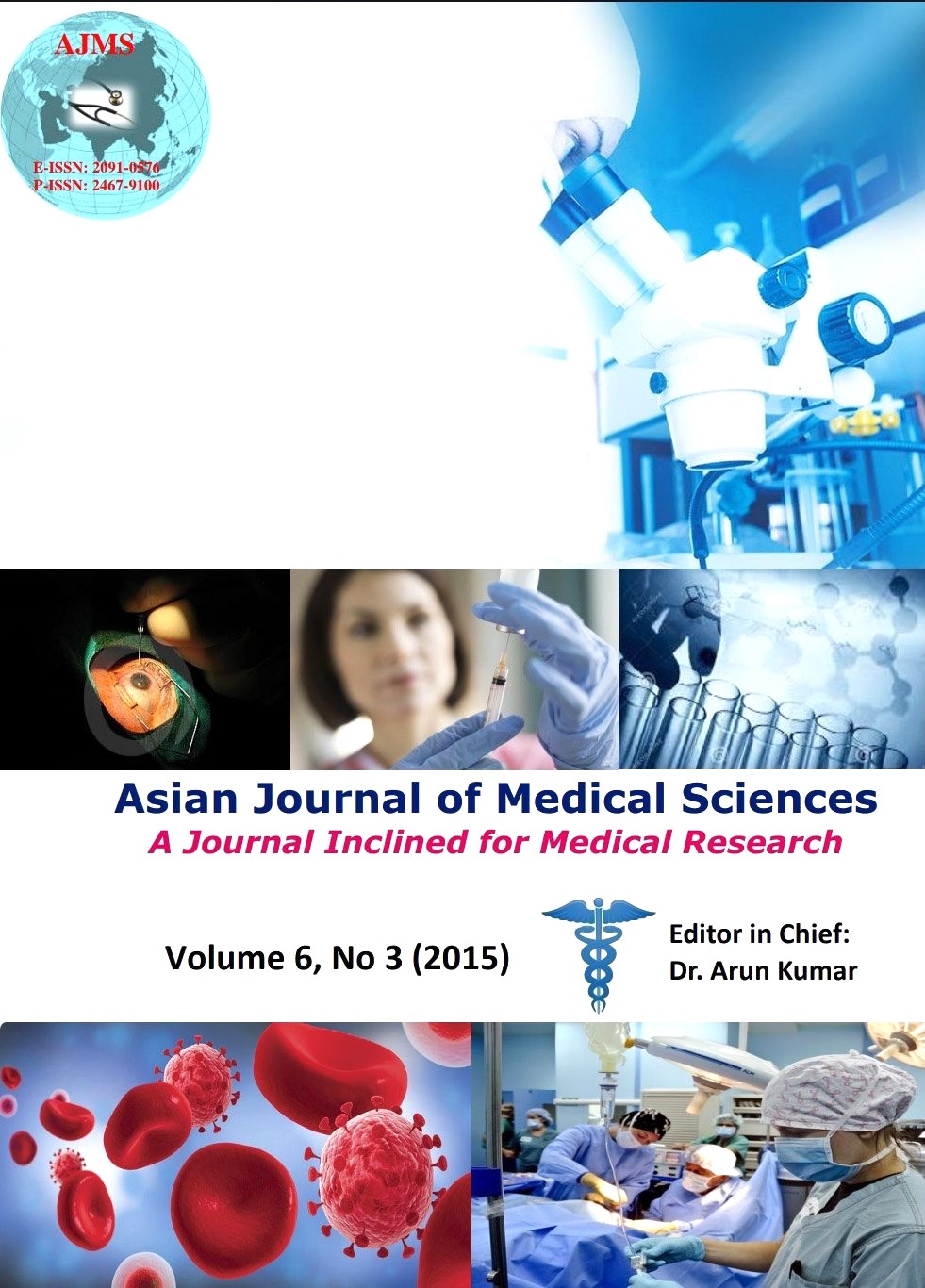Molecular epidemiology of Hepatitis C Virus (HCV) in liver disease patients in Sri Lanka
Keywords:
Liver Diseases, Hepacivirus, GenotypeAbstract
Background: Globally, hepatitis C virus (HCV) is an important cause of chronic liver disease. Genotypes of HCV are associated with different profiles of pathogenicity, infectivity, and antiviral therapy. The prevalence of HCV and distribution of HCV genotypes in Sri Lanka in comparison with the rest of Asia is not well known.
Objective: The objective of the study was to investigate the presence of HCV and to genotype HCV in a group of Sri Lankan patients suspected to have liver disease.
Methods: A total of 1933 samples were screened for HCV antibodies using ELISA and HCV RNA with RT-PCR methods. RNA positive samples were genotyped by type specific amplification and by DNA sequencing.
Results: Out Of the 1933 liver disease patients tested 219 (11.33%) were detected to be positive for anti-HCV antibodies, out of which, 54 (24.66%) were positive for HCV RNA. Furthermore out of 49 positively tested patients, 24 (48.97%) were found to be categorised as HCV genotype 1.
Conclusion: This result confirms previous observations that the contribution of HCV as a causative virus in liver disease patients is low in Sri Lanka. HCV genotype 1 was found to be the most predominant genotype in studied cohort of Sri Lankan liver disease patients.
DOI: http://dx.doi.org/10.3126/ajms.v6i3.10741
Asian Journal of Medical Sciences Vol.6(3) 2015 1-5
Downloads
Downloads
Additional Files
Published
How to Cite
Issue
Section
License
Authors who publish with this journal agree to the following terms:
- The journal holds copyright and publishes the work under a Creative Commons CC-BY-NC license that permits use, distribution and reprduction in any medium, provided the original work is properly cited and is not used for commercial purposes. The journal should be recognised as the original publisher of this work.
- Authors are able to enter into separate, additional contractual arrangements for the non-exclusive distribution of the journal's published version of the work (e.g., post it to an institutional repository or publish it in a book), with an acknowledgement of its initial publication in this journal.
- Authors are permitted and encouraged to post their work online (e.g., in institutional repositories or on their website) prior to and during the submission process, as it can lead to productive exchanges, as well as earlier and greater citation of published work (See The Effect of Open Access).




